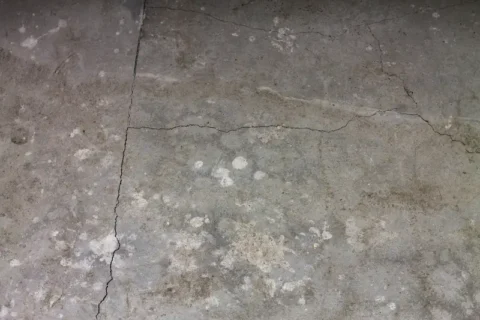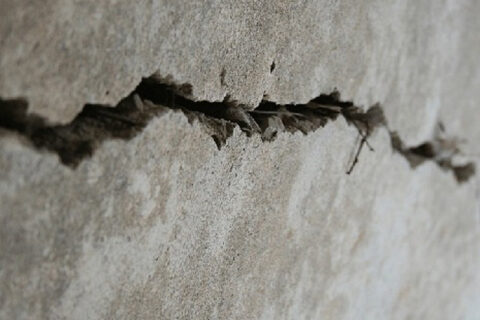Foundation Repair in Milwaukee 101
A home that is sinking or settling will show signs. Cracked foundation walls, bulging floors, and doors and windows that stick are all signs of foundation settlement. Inside you may notice the chimney is pulling away from the ceiling. Cracks are forming in the sheetrock and in the molding. Outside bricks are cracking. There are new gaps around the garage door, windows, or walls. The foundation walls are rotating, bowing, or bulging.
Ultimately, the soil underneath the house is moving making the whole structure unstable and unsafe.
It is important to remember that not all foundation cracks mean a settlement issue. Settlement cracks in the foundation are nearly always vertical and have similar cracks on adjacent foundation walls. Settlement cracks should not be confused with cracks that occur when a wall is subjected to lateral movement from soil pressure.
Causes of Foundation Issues
The most common cause of settlement is expansive soil. Expansive or clay soils expand and contract with weather and soil moisture: expanding with excessive moisture and shrinking in dry times. Sixty percent of homes built on expansive soils will experience foundation distress.
Improper backfill compaction is the next common cause of settlement issues. If the soil underneath the foundation was not compacted properly it will settle and damage the foundation. The ground below a foundation slab and/or footings should be properly filled and compacted to avoid soil settlement.
The third common cause of settlement issues is improper maintenance around the foundation. The grade should slope away from the foundation at six inches for every 10 feet. The yard drainage should also channel water away from the foundation wall to avoid excess water and erosion.
Some degree of settlement will occur naturally. The problem happens when part of the slab settles and the rest of it doesn’t. That is when the major damage can occur.
In residential properties, settlement problems can result in potential damage to the structure, potential accidents, and loss of real estate value. If you see signs that foundation repair in Milwaukee is necessary, don’t delay in getting the problem solved. The longer you wait, the more your foundation will sink and cause further costly damage.
Foundation work is definitely not a do-it-yourself project. Choose a reputable foundation repair in Milwaukee contractor with experience and a warranty on the work and services. Remember, a warranty is only as good as the company that backs it. Carefully choose the foundation repair contractor you work with.
Ready to Get Started?
Contact Us Today to Schedule a No Pressure, No Obligation, Free Quote!


